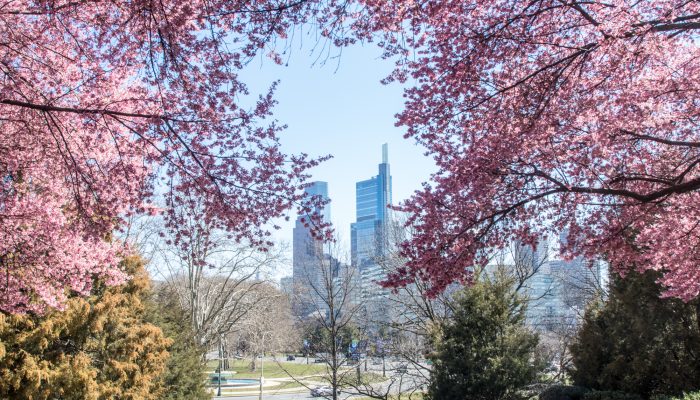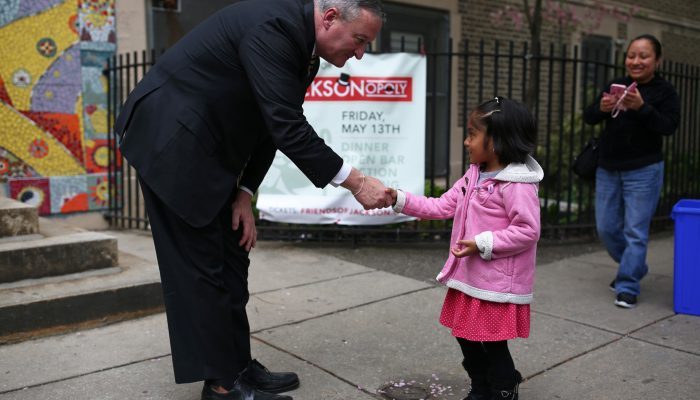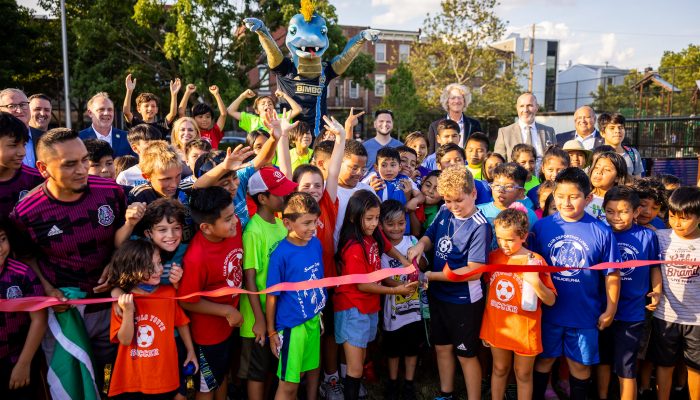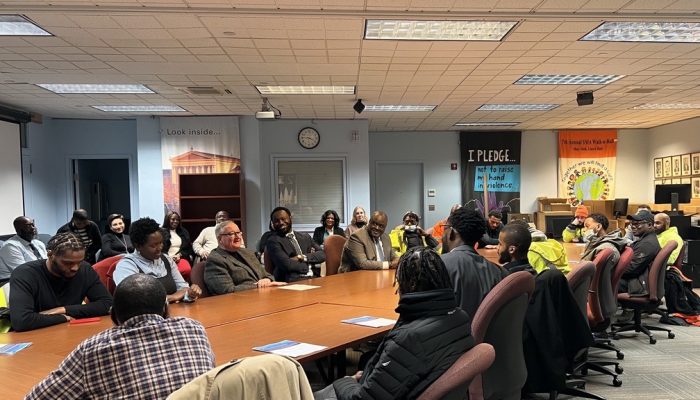This year, I am pleased to present our sixth proposed Five Year Financial Plan, covering Fiscal Years 2022-2026.
Our proposed budget for fiscal year 2022 and our Five-Year Financial and Strategic Plan was created with one guiding vision: that Philadelphians in every neighborhood benefit from what I believe will be a strong recovery. It focuses on:
- Providing core services that people depend on,
- Accelerating inclusive, economic growth,
- Maintaining the City’s long-term fiscal health,
- And reducing racial disparities.
While the threat of the pandemic is still very much with us, this plan envisions a path beyond the devastating impact of COVID-19.
An integral part of the Plan is an estimated $1.4 billion from the American Rescue Plan, passed by Congress and signed into law by President Biden. This relief will greatly help ease the effects of projected revenue declines from business closures and changes to workplace occupancy that were necessary to slow the spread of the virus.
This budget proposes:
- No tax or fee increases. In fact, we’ll help businesses and residents by providing tax relief.
- Wage Tax reductions to the lowest level in 50 years to help jumpstart our economy and provide relief to workers.
- The restoration of previously planned reductions to business tax rates and the Parking Tax rate to return to pre-pandemic levels.
Addressing gun violence and enacting police reforms
The plan sets aside $1.3 million to expand proven violence interruption programs like Community Crisis Intervention Programs and Group Violence Intervention, and $500,000 is allocated for an expansion of Targeted Community Investment Grants for violence prevention programs run by community partners.
Also proposed is $1.35 million for community improvements including graffiti clean up, vacant lot remediation, clean and seal efforts, and improved lighting and visibility in key neighborhoods. Learn more about these investments.
We propose $2 million for a Transitional Jobs Program to address a root cause of violence, lack of job opportunities.
To improve City response to issues related to mental health, the Plan funds a $6 million expansion of the pilot 911 triage and co-responder program, as well as a $7.2 million expansion of behavioral health mobile crisis units and a hotline to provide emergency mental health services city-wide.
Nearly $2 million is proposed to establish a new Citizen Police Oversight Commission to restore public confidence, to review citizens’ complaints, and to create better police community interactions.
Investing in Quality Education
The Five Year Plan calls for a quarter of a billion dollars in the Community College of Philadelphia, with $54 million dedicated to the Octavius Catto Scholarship. This initiative will enable 5,000 first-time, full-time, students to attend college tuition-free, as well as receive food, book and transportation stipends.
The Five Year Plan envisions a return of teachers and students to classrooms, with $1.38 billion in funding for the School District of Philadelphia. This is on top of the $1.3 billion that the District will receive through the American Rescue Plan.
PHLpreK will grow with 700 new slots (to 4,000 in the coming fiscal year). Offerings at Community Schools will expand to include case management support.
Fostering inclusive economic growth
The budget restores $3 million to the Office of Workforce Development, $150,000 for the “Color Me Back Same Day Pay” program, $1.5 million in adult education programs, and $170,000 for digital equity initiatives.
Additionally, in the Capital program, we’ve earmarked 20 million dollars toward economic development projects like the I-95 Cap, Schuylkill River Development Corporation’s Christian to Crescent, and East Market and Neighborhood Commercial Center improvement projects.
Keeping Philadelphians healthy and housed
The Plan sets aside $50 million for COVID-19 containment, as part of a $75 million Reopening and Recession Reserve. To eliminate health disparities and safeguard residents from threats that cause disease and injury, the City will invest $250,000 to develop a citywide strategy to improve racial equity in health outcomes.
To continue the City’s battle against the scourge of opioids, the Plan allocates $400,000 for opioid treatment, and $500,000 for the Opioid Response Unit, the multi-departmental effort to address the opioid epidemic.
The plan adds $12.9 million for shelter beds for Philadelphia’s unsheltered population, to replace one-time federal dollars.
Improving quality of life in neighborhoods
The Capital program includes $317 million over six years in street paving, reconstruction, and ADA curb ramps. This is the largest single-year investment in the City’s history.
To help our commercial corridors, the plan provides $300,000 in additional funding for storefront improvement and security grants.
Additional investments in Philadelphia’s shared public spaces include $1.8 million to restore five-day service at libraries and $3.7 million to restore recreation centers hours and reopen pools.
$450,000 is allocated to the Streets Department to sustain enforcement for the “PHL Taking Care of Business Corridor Cleaning” program.
Other significant capital projects over the next six years include Citywide Technology Improvements and Enhancements ($136.8 million), FDR Park Master Plan Improvements ($50 million), and Neighborhood Commercial Centers ($26.5 million).
Unlike the previous five, this Plan comes in the wake of what many consider the most challenging year in Philadelphia’s history.
The combination of a global pandemic, a tumultuous presidential election, a worsening gun violence epidemic, and long overdue demands for racial justice, have tested the resolve and resilience of every single Philadelphian.
We’ve experienced a great deal of loss. We lost loved ones, many lost their jobs, and others lost businesses they worked years to build.
But I, for one, have never lost hope—hope for our City’s ability to rebound, hope for our capacity to overcome, and hope for an eventual return to all that makes Philadelphia great.
This Plan will serve as the financial blueprint for the city’s equitable recovery in the wake of the COVID-19 pandemic. This budget was created with one guiding vision: that Philadelphians in every neighborhood benefit from a strong recovery.




